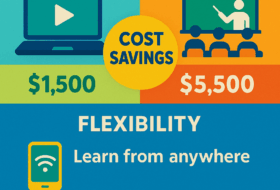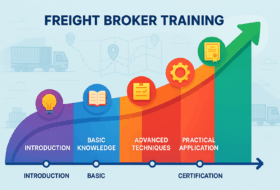What are the Requirements for all Brokers?
All brokers must comply with the regulations in 49 CFR §371. This includes recordkeeping, proper business conduct, and transparency in financial management and dealings with shippers/carriers. The FMCSA official site has the full breakdown.
Records, Rules, & Accounting
To stay compliant, keep a record for each brokered transaction. Key requirements include:
- The name and address of each consignor
- The name, address, and registration number of the originating motor carrier
- The bill of lading or freight bill number
- Compensation received for services and the name of the payer
- Details of any non-brokerage services, amounts, and payer info
- All collected freight charges and payment dates to carriers
All records must be kept for at least three years, and both parties have the right to review them.
Misrepresentation & Broker Identity
- Use only the name stated on your registration/authority in business and advertising
- Never represent yourself as a carrier if you are not
- All advertising must clearly show your status as a broker
Rebating & Compensation Rules
- No compensation from carriers if the broker owns/is invested in the shipment or has direct/indirect control
- Never offer gifts to shippers/consignors/consignees (except for token promotional items)
Accounting Compliance (49 CFR §371.13)
If you run other businesses, especially transportation operations, keep broker financials separate. Shared expenses must be clearly attributed in the records.
Dealing Only with Valid Carriers (49 CFR §371.105)
You may conduct business only with motor carriers who have a valid USDOT number and authority. Verify a carrier’s status regularly at FMCSA’s Company Snapshot.
Business Startup Tips for New Brokers
- Name your company and choose a legal structure (incorporation, proprietorship, partnership, etc.)
- Get your FEIN for corporations/partnerships, or use your SSN for sole proprietorships
- Consider a unique, clear business name and check for availability at the state/county level
- Draft a partnership agreement if working with partners
- Set up a basic office: computer, high-speed internet, phone (consider RingCentral.com for telecom)
- Other essentials: fax, filing cabinet, load board (FindFreightLoads.com), MS Office, business email, and website
- You can operate from home at first, but will need an office if scaling with additional agents
Questions? Visit our main site or get 15% off packages with the form below!





